 |
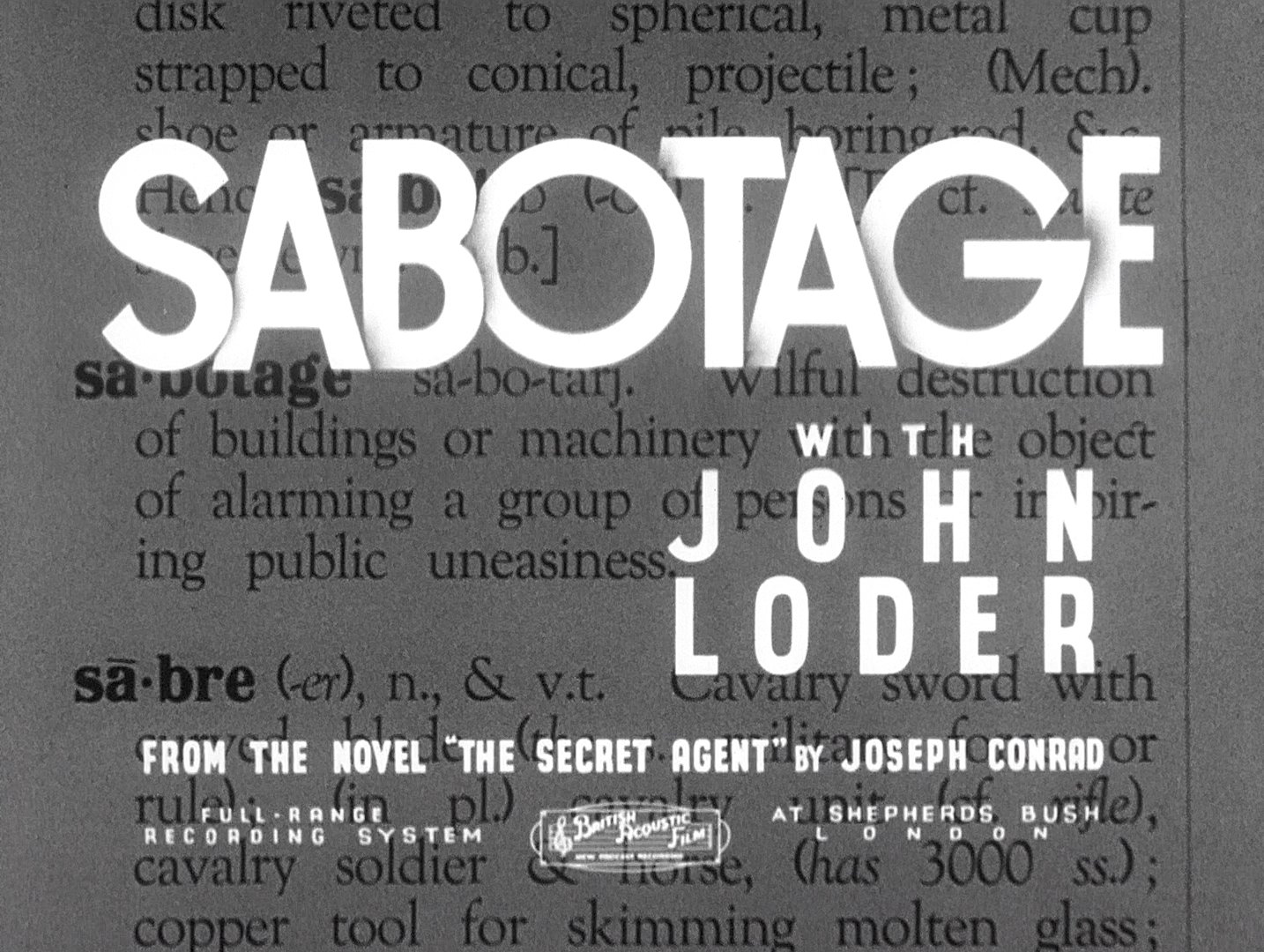 |
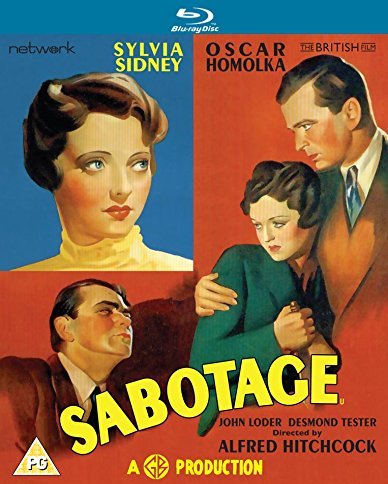 |
Gaumont British Picture Corporation Release date: December 2, 1936 Time: 76 mins 33 secs Rating: 7/10 Director: Alfred Hitchcock From the novel "The Secret Agent" by Joseph Conrad Screenplay: Charles Bennett Dialogue: Ian Hay, Helen Simpson Continuity: Alma Reville Additional dialogue: E.V.H. Emmett Photography: Bernard Knowles Editor: Charles Frend |
 |
 |
A lightbulb flickers and then goes out as London becomes engulfed in a blackout. Sand is found in a power station generator, which leads the experts to suspect sabotage is afoot. The London Underground comes to a halt (the tube train destination is Enfield West which was at the time a station on the Piccadilly line; it later changed its name to Oakwood station.) At the Bijou theatre, the patrons are in uproar and demand their money back on account of the darkness. The ticket office, under pressure from the frustrated public have to try and diffuse the situation. Whilst this is going on, the proprietor, Mr. Verloc, returns to the theatre via a back door and sneaks upstairs and pretends to have slept through the blackout. His wife comes into the room and tells him of the commotion downstairs with the complaining public. He tells her to give them their money back despite knowing it would be a financial disaster. A nearby vendor pitches in with trying to convince the angry crowd to leave on account they won't receive a refund when Mrs. Verloc tells them they will. Just then the power is restored and the offers of refunds is recinded. An off-duty policeman, convinced he had seen Verloc entering the theatre during the blackout, enters his living quarters to deliver some lettuce. He later reports to Scotland Yard of his suspicions. A meeting between Verloc and a conspirasory at London Zoo reveals a sinister plan to place a bomb in Piccadilly Circus. They are observed by a detective who later reports back to office. Ted takes Mrs. Verloc and her younger brother Stevie to an expensive restaurant in the hope of trying to squeeze some information out of her, but she portrays her husband as a very loving man. A pet store in Liverpool Road, Islington .... a disgrunted lady customer complains about her mute canary (it's a rather humorous scene). But in the back room the friendly pet store owner isn't what he seems, as he discusses with Verloc the plan for this coming Saturday and the bomb that will he will supply to him. |
 |

| Facts • Released as "The Woman Alone" in the United States. Trivia • Filmed November-December 1936. • The numbers on Carl's license plate add up to 13. Hitch used this joke in some of his films as well. • Most sources wrongly list Alfred Hitchock's on-screen cameo as the man walking past the theatre just after the lights come back on. Get real. • The Bijou Cinema is located in Plouthorp Road, London SE5 - according to the letter head paper Verloc uses. Personal opinion • "STILL REVIEWING SO STAY TUNED" Geoff thinks.... • "This'll confuse you. Hitch's 1936 version of Somerset Maugham's Ashenden stories was titled Secret Agent. Nice catchy title, good box office. In one of those inexplicable coincidences that inflict us all from time to time, his next project was an adaptation of Joseph Conrad's novel The Secret Agent - but he couldn't call it that, as he'd just used the title ! So they came up with Sabotage, which is, in my opinion, sharper and more appropriate. You'll hear more of my opinion in a moment as I dare to disagree with Mr. Hitchcock..... The movie retains the essential thread of Conrad's story but changes the setting, updating it to contemporary London and making Conrad's seedy pornographer Verloc an equally seedy cinema owner. Verloc has an American wife, and she has a younger brother Stevie, who is English. Yes, that's right. We'll assume, shall we, that he's American too but was brought up in London from an early age, which neatly explains THAT. (It also explains Dick Van Dyke's accent in Mary Poppins, but we'll run out of space.....) Sabotage is one of Hitch's most stylish English movies, and it's always been one of the most easily accessible due to its apparent Public Domain status and frequent television showings over the years. There are memorable scenes involving inspired use of montage and quick cutting, notably a long sequence in which Stevie attempts to deliver a package. Verloc, conscious of being watched by the police, has given Stevie the package to deliver by 1:45 pm, but Stevie, being a schoolboy, is sidetracked in all sorts of ways - and the suspense builds and builds - and he has to take a bus to regain some time. It's the day of the Lord Mayor's Show, there are more delays, one of the packages contains a bomb, and the whole bus blows up. In later years Hitch was interviewed about this, and he regretted his decision to have the bus and the boy blown up. He considered it a mistake, and at the time of the film's original release, there were criticisms of this. Yet during the production, everyone concerned must have considered it to be the correct decision to move the plot forward. Personally I feel that Hitch's original decision was well-judged. Firstly, it's true to the novel. Conrad's Stevie was simple-minded, but he was blown up. Secondly, to this day terrorists kill innocent people, on an increasingly large scale. If someone had discovered the bomb, and Stevie had survived, this would have undermined the power of the later scenes in the movie in which Mrs. Verloc, in deep shock, realises exactly what kind of man she's married to, and stabs him with a kitchen knife. Stevie's death is shocking, but in order to depict the true nature of terrorism, it needs to be shown. The end of the movie mirrors the end of Blackmail. The heroine kills a baddie in self-defence, an action which at the very least is likely to bring a conviction for manslaughter, possibly murder, yet she gets away with it due to a combination of luck - providence ? - and the co-operation of a kindly policeman/boyfriend who is willing to ignore his integrity for love. In both case, the happy couples walk off together, but just how happy are they ? They could live for decades but that incident would always be there. Hardly happy endings at all, but they have to be ambiguous. This is 1930s cinema. Crime must not be seen to pay." |
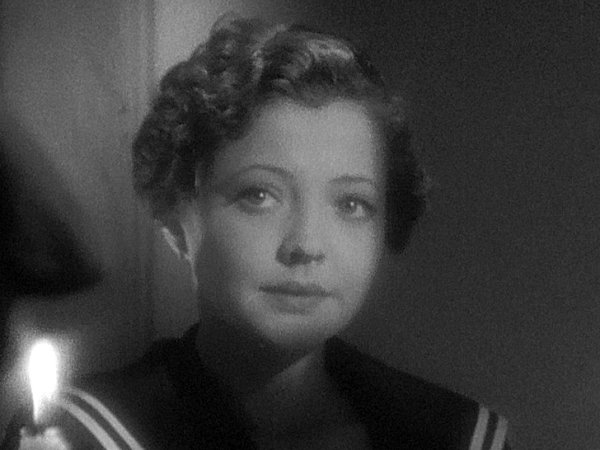 |
Sylvia Sidney Mrs. Verloc |
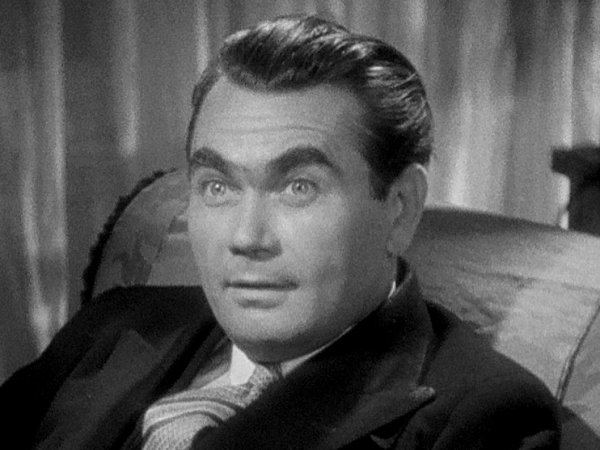 |
Oskar Homolka Mr. Verloc |
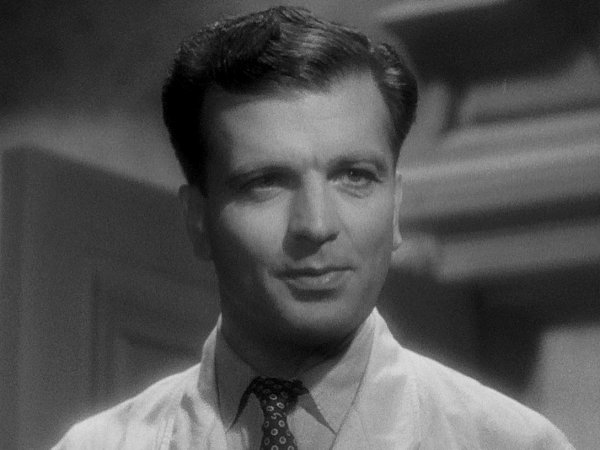 |
John Loder Ted |
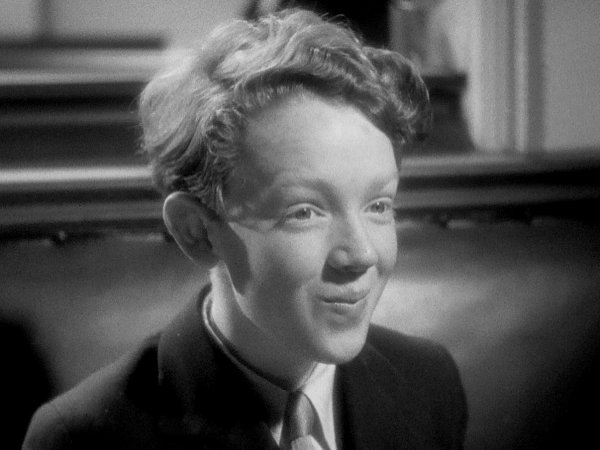 |
Desmond Tester Steve |
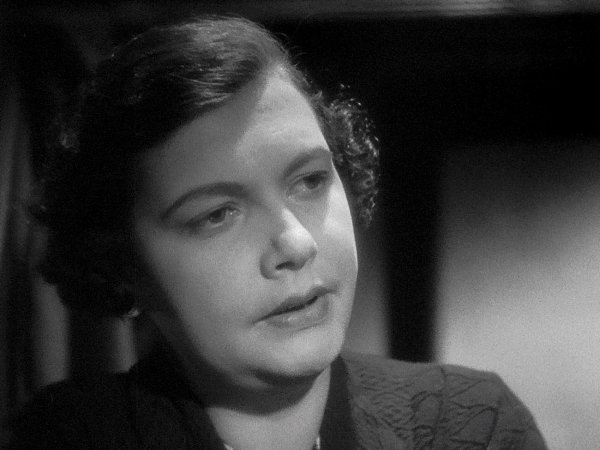 |
Joyce Barbour Renee |
 |
Matthew Boulton Superintendent Talbot |
 |
S.J. Warmington Hollingshead |
 |
William Dewhurst The professor |
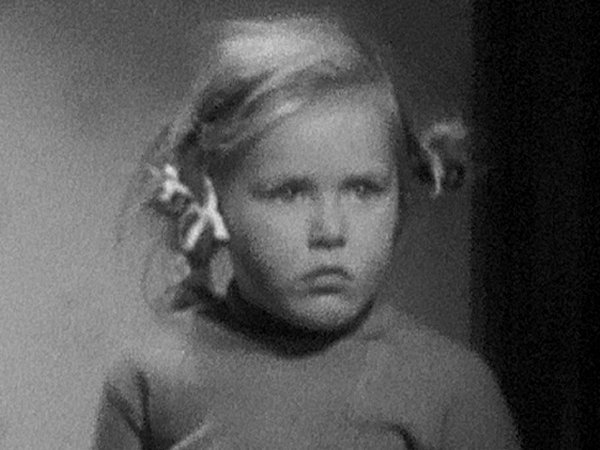 |
Pamela Bevan Miss Chatham's daughter |
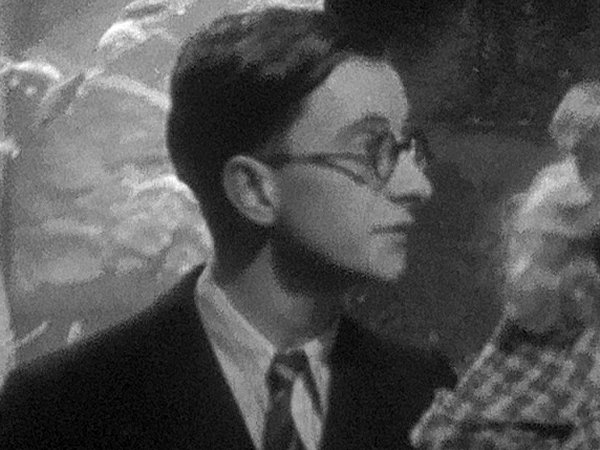 |
Charles Hawtrey Studious youth at aquarium |
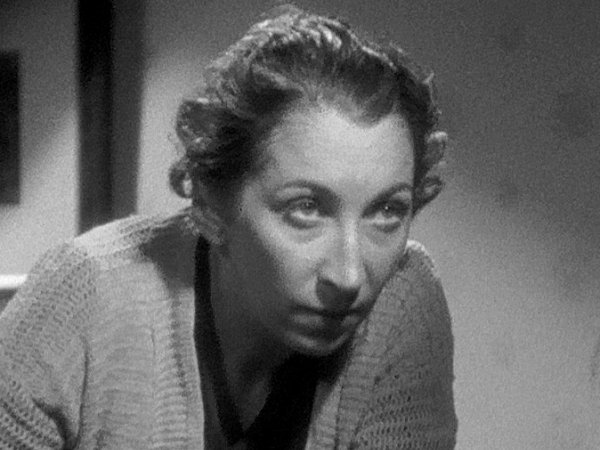 |
Martita Hunt Miss Chatham, the professor's daughter |
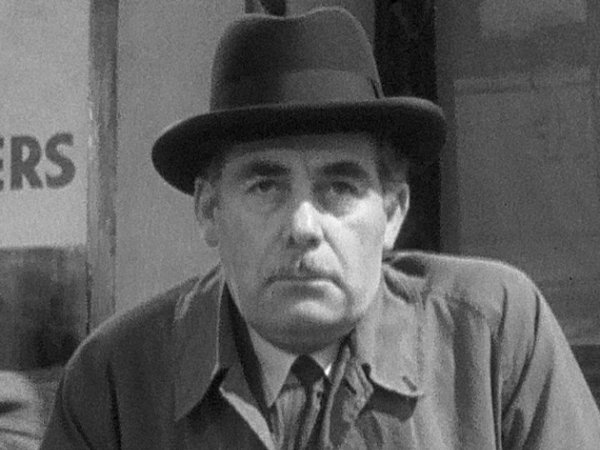 |
Austin Trevor Vladimir, paymaster at aquarium |
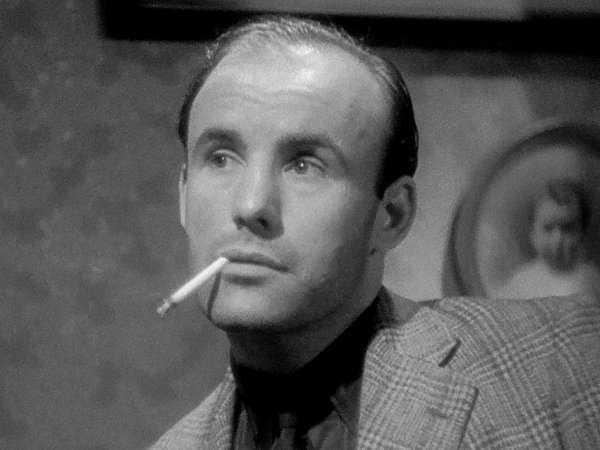 |
Torin Thatcher Yunct, conspirator |
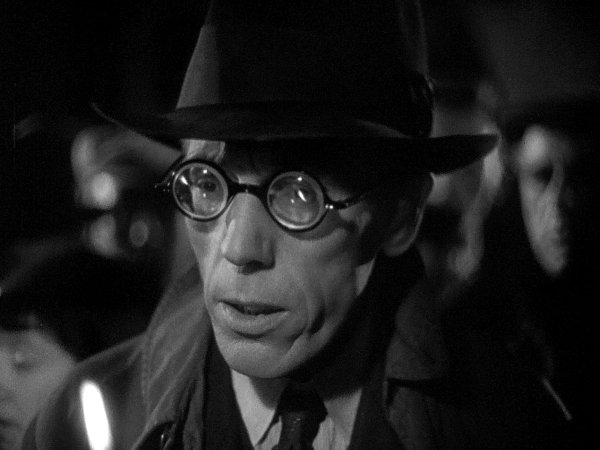 |
Sam Wilkinson Angry theatre patron |
| CREDITS |
 |
| LOCATIONS |
| This page was last updated on: 14 January 2018 |